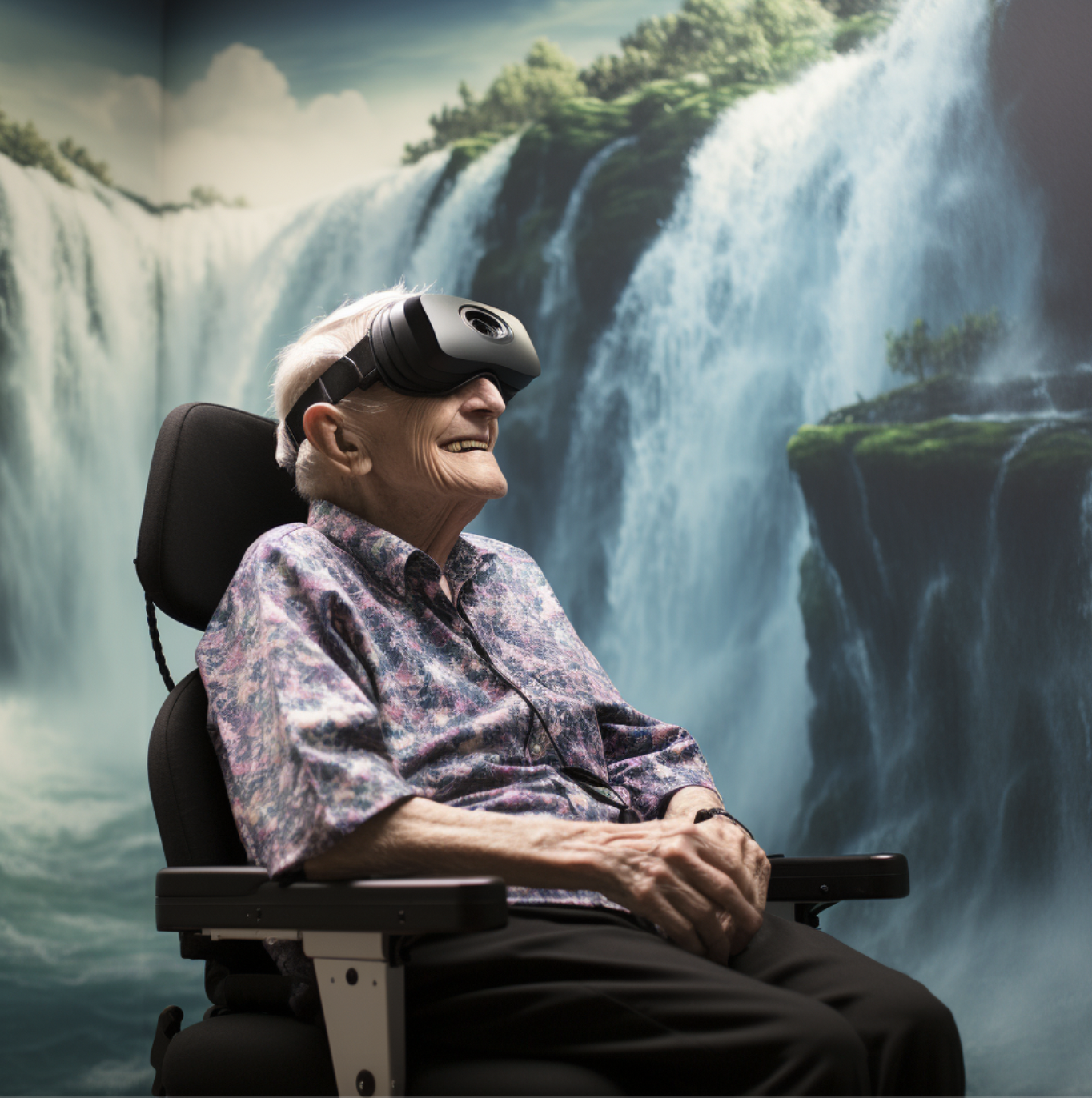Revolutionizing Healthcare: The Impact of Virtual Reality in Modern Hospitals
In recent years, the healthcare industry has witnessed a groundbreaking transformation with the integration of virtual reality (VR) technology. This...

Immersive art experiences that utilize artificial intelligence (AI) are emerging as innovative therapeutic tools for improving mental health and aiding rehabilitation. From virtual reality (VR) to augmented reality (AR), these tech-driven art encounters are providing patients and clients with visceral, embodied healing experiences.
Research indicates the profound impacts immersive art can have on wellbeing. A 2019 study found that just 15 minutes in a VR nature simulation significantly reduced stress hormones in participants (Tanja-Dijkstra, 2022). Another study revealed VR art therapy improved mood, anxiety, and pain in hospitalized children (Tashjian et al., 2017). Scientists believe immersive art activates the parasympathetic nervous system, triggering relaxation and restoration.
AI heightens the therapeutic effects. Algorithms gather biometric data - like heart rate - to customize experiences to the individual, optimizing outcomes. AI also allows realistic natural environments and reactive avatars that converse and empathize with users. This level of personalization and humanity enhances emotional engagement and cognitive benefits.
Rehabilitation facilities are embracing VR and AR art therapies. One program helps stroke patients practice daily activities in adaptive simulated environments (Aminov et al., 2018). Another uses an AI-driven VR system to aid veterans with PTSD by vividly exposing them to traumatic memories in a controlled therapeutic setting (Botella et al., 2015).
The potential clinical applications of immersive art span from anxiety and depression to Alzheimer’s and addiction. As AI and art continue converging, this innovative fusion promises more holistic, experiential treatment options for mental health. Harnessing technology to activate our natural healing abilities, immersive art therapies could transform lives. More human-centered research into neurobiology and design principles is key to guiding ethical, effective practice.
Conclusion
Immersive art enhanced by AI is unlocking new therapeutic potential in the fields of psychology, neuroscience, and rehabilitation. Early research demonstrates these technologies can benefit diverse patients, from reducing anxiety in hospitalized children to aiding stroke recovery. While more human-centered studies are needed, the mind-body healing effects of immersive art underscore the profound interplay between our cognition, emotions, and physical environments. Harnessing AI to design personalized, multi-sensory simulations promises more holistic and engaging treatment options for many mental health conditions. With thoughtful development guided by clinical evidence, immersive art therapy could soon be an integral part of mental healthcare - activating our brains' and bodies' innate healing capacities through moving human experiences.
Sources:
Aminov, A., Rogers, J. M., Middleton, S., Caeyenberghs, K., & Wilson, P. H. (2018). What determines the efficacy of virtual reality-based intervention for upper limb rehabilitation? A meta-analysis of randomized controlled trials. European journal of physical and rehabilitation medicine, 54(3), 291–300.
Botella, C., Serrano, B., Baños, R. M., & Garcia-Palacios, A. (2015). Virtual reality exposure-based therapy for the treatment of post-traumatic stress disorder: a review of its efficacy, the adequacy of the treatment protocol, and its acceptability. Neuropsychiatric disease and treatment, 11, 2533–2545.
Tanja-Dijkstra, K. (2022). The Physiological Effects of Virtual Nature: A Quantitative Meta-Analysis. Frontiers in psychology, 13, 807129.
Tashjian, V. C., Mosadeghi, S., Howard, A. R., Lopez, M., Dupuy, T., Reid, M., Ahmed, S., Dailey, F., Robbins, K., Rosen, B., Fuller, G., Danovitch, I., IsHak, W., & Spiegel, B. (2017). Virtual Reality for Management of Pain in Hospitalized Patients: Results of a Controlled Trial. JMIR mental health, 4(1), e9.

In recent years, the healthcare industry has witnessed a groundbreaking transformation with the integration of virtual reality (VR) technology. This...

The Emergence of VR in Mental Health Virtual reality (VR) technology has evolved significantly, becoming more than just a tool for gaming and...

Immersive AI in Hospice Care Hospice care is a crucial and compassionate service provided to individuals facing life-limiting illnesses. It focuses...